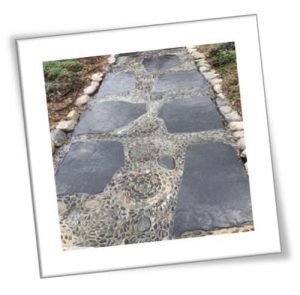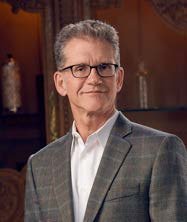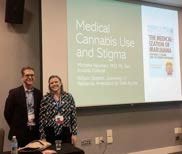
Dear Readers Who Write,
Generational pain prompted my first two books, The Edgefielders: Poor Farm Tales of a Great-Grandmother and Silent Voices. The discipline of discovery writing gave me tools to explore the mysterious forces that tear families apart and the ties that bind families together.
Novels by contemporary authors are reminders that you and I do need not bear generational pain alone. Current fictional favorites include:
- The Other Americans by Laila Lalami
- World Light by Halldor Laxness
- Love by Toni Morrison
- Gonzalez & Daughter Trucking Co. by Maria Amparo Escandon
- Mink River by Brian Doyle
- Take One Candle, Light a Room by Susan Straight
The colorful characters in my four Beacons novels also support readers who may feel alone in bearing generational pain. Love stories & family sagas forge strong connections with readers, despite diversities of race, religion, class and gender identity. Inspiring memoirists include:
- Living With a Wild God by Barbara Ehrenreich
- The Divine Dance: The Trinity and Your Transformation by Richard Rohr
- Joy Unspeakable by Barbara Holmes
- I Could Tell You Stories by Patricia Hampl
- Sisterhood Heals: The Transformative Power of Healing in Community by Joy Harden Bradford
“We are nervous beings, in nervous nations, at an increasingly nervous time,” writes Jen Soriano in Nervous: Essays on Heritage and Healing. In the September-October issue of Poets & Writers journal, Soriano’s words shimmer with meaning. “I wrote this” she says, “ … for pearls in their shells seeking conditions to shine. My story is just one ripple in an emerging ecosystem of interdependence, where we don’t have to bear generational pain alone.”

 Reviewer Judith Wright Favor is an elder member of Claremont Monthly, Southern California Quarterly, and Pacific Yearly Meetings. Her latest publication is the Pendle Hill pamphlet: Friending Rosie on Death Row.
Reviewer Judith Wright Favor is an elder member of Claremont Monthly, Southern California Quarterly, and Pacific Yearly Meetings. Her latest publication is the Pendle Hill pamphlet: Friending Rosie on Death Row. the muscles of Williamʼs body. Cyclist, writer and teacher, his ineffable sense of alignment with Spirit was palpable to me, but hard to name. Words came later. William Dolphinʼs presence reminds me of William Wordsworthʼs definition of Light, “a sense sublime of something far more deeply interfused.”
the muscles of Williamʼs body. Cyclist, writer and teacher, his ineffable sense of alignment with Spirit was palpable to me, but hard to name. Words came later. William Dolphinʼs presence reminds me of William Wordsworthʼs definition of Light, “a sense sublime of something far more deeply interfused.” I experienced a conversion of sorts when the Salvadoran poet confronted me, a political awakening. His problems became my responsibility. Our conversation reconnected me spiritually to caring for others. At the same time, I was reconnecting with my physical self as I became a serious athlete. I started cycling as transportation, but my ambitious bent meant I challenged myself to ride farther and farther, and then faster and faster. In the process, it saved me, biochemically. Alcohol cravings disappeared. I suspect that as a younger person I experienced pain – both physical and emotional – more acutely than many do, but endurance sports train you to tolerate suffering. I also found a meditative space in the long hours alone on the road.
I experienced a conversion of sorts when the Salvadoran poet confronted me, a political awakening. His problems became my responsibility. Our conversation reconnected me spiritually to caring for others. At the same time, I was reconnecting with my physical self as I became a serious athlete. I started cycling as transportation, but my ambitious bent meant I challenged myself to ride farther and farther, and then faster and faster. In the process, it saved me, biochemically. Alcohol cravings disappeared. I suspect that as a younger person I experienced pain – both physical and emotional – more acutely than many do, but endurance sports train you to tolerate suffering. I also found a meditative space in the long hours alone on the road. to the truth and to act with compassion. My advocacy work gave me the opportunity to meet a remarkable range of heroic people who, like my father, just want to live with dignity as comfortably as they can. The writing I’ve done on this topic — articles, lobby sheets, white papers, op-ed pieces, informational pamphlets on using cannabis to treat various conditions — has made a difference for many of them, and over time we’ve changed the conversation. The scare-quotes around “medical” marijuana have disappeared. 46 states now have some sort of medical cannabis law and the first drug derived from the plant has just been approved by the FDA.
to the truth and to act with compassion. My advocacy work gave me the opportunity to meet a remarkable range of heroic people who, like my father, just want to live with dignity as comfortably as they can. The writing I’ve done on this topic — articles, lobby sheets, white papers, op-ed pieces, informational pamphlets on using cannabis to treat various conditions — has made a difference for many of them, and over time we’ve changed the conversation. The scare-quotes around “medical” marijuana have disappeared. 46 states now have some sort of medical cannabis law and the first drug derived from the plant has just been approved by the FDA.